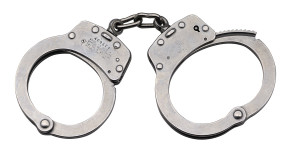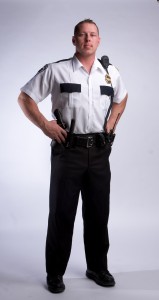Category: Training
Security Guard Training Schools Exposed
Aug
31
2016

Texas Certified Training Academy is encouraging the public to report lack of training at schools for security officers in Texas
Too often you hear of security officers in the news committing senseless acts and making poor decisions that could have been avoided. Immediately following such an occurrence, authorities and media outlets covering these incidents inquire about what security guard training the officer received, if any at all, and which school conducted the instruction.
The average client or citizen would be amazed of how little security officers are trained; then, to have training academies or Instructors shorten or cut what little is left is unbelievable.
Glenn Jones – Security expert, says “All roads lead back to the training academies; they are the ones certified by the state and charged with the responsibility of ensuring the basic standards are being met.
They are also the ones being paid by their students or security companies to properly train their students. If Instructors don’t provide at least the minimum required by the state, the officer, employer, and their clients are let down and exposed to liability – a responsibly we take very seriously at TCTA.”
Security Guard Training – Investigation of Guard’s Training Occurs After Garage Shooting
Many training academies and their Instructors have been caught cutting corners, shaving off major time from required classes, not following the state’s guidelines, and even graduating students regardless if they did not qualify at the range or pass the written exam.
As a matter of fact, TCTA has reported two schools and three Instructors for engaging in these acts which led to DPS investigations.
 Why is this even occurring – who knows?
Why is this even occurring – who knows?
Maybe Instructors are lazy and lack proper training themselves or they’re trying to win more business by giving deals and so-called hook-ups; whatever the case, it has to be stopped and now!
The results of improperly vetted Instructors at security guard training academies –
When Instructors are not vetted too well from DPS or their own employer, you often find some that turn a program of education and training into a “certificate mill” for a fast buck.
They often  cut corners because they lack the real knowledge of being a teacher, or no longer care about what they are doing and see each student as a dollar sign and not someone who needs valuable training.
cut corners because they lack the real knowledge of being a teacher, or no longer care about what they are doing and see each student as a dollar sign and not someone who needs valuable training.
Some training academies outright give the answers to the state exam while others simply ignore shooting qualifications, allowing students to pass even if they fail this portion of training… That’s absurd!
If a student can’t pass the range portion of the course, there should be no way on earth that student receives a level-3 certification.
When Instructors sign a certificate signifying that student passed and is safe to act in the capacity of an armed security officer, they have just falsified a state document and could face suspension and arrest.
So what’s needed?
Crime is increasing daily and as a result, security companies are receiving more and more calls requiring coverage. Why would a potential client hire a security provider whose guard force lacks training and could potentially be negligent to that client?
It only makes sense to have qualified officers who can cover accounts without jeopardizing their lives or the lives of others.
Any security guard training academy in Texas that passes their students just because they attended their school should be closed immediately. This industry cannot afford to have that level of incompetence.
How can improvements be made to security guard training academies in Texas
- DPS needs to thoroughly vet security training Instructors and put them through a training program as they do with LTC Instructors. “Just because a person was a prior police officer or ex-military does not automatically mean that person is a great teacher or runs a proper program or even cares about their job, so they need to be vetted and inspected more” says Glenn Jones.
- Raise the guard training program standards and required hours – some manuals were last updated in 1999 (i.e. the Level-4 manual as an example).
- DPS-RSD needs to develop with the aid of security experts (not civilians and troopers) but security experts a standard class with all the materials so each school is teaching the same exact class in the same manner without deviations.
- DPS-RSD needs to visit and sit through more training academies instead of focusing on the guard companies.
Texas Certified Training Academy takes pride in providing education to security officers throughout the state of Texas. We refuse to stand by and let a few “bad apples” hurt the guard industry by being lackadaisical.
Trying to win more business by letting students pass even when they fail is doing a disservice to the guards, the general public, and security clients. There’s just no way around this.
How can the public ensure qualified Instructors are at security guard training schools?
 We are asking for help with stopping this fiasco. If you or someone you know has experienced an academy that is cutting corners by shorting hours required by the state of Texas, giving away answers to the state exam, or passing students that clearly fail shooting requirements, please contact Texas Department of Public Safety and report this immediately.
We are asking for help with stopping this fiasco. If you or someone you know has experienced an academy that is cutting corners by shorting hours required by the state of Texas, giving away answers to the state exam, or passing students that clearly fail shooting requirements, please contact Texas Department of Public Safety and report this immediately.
Whether it’s License to carry ltc classes, non-commission or commission classes, or security management courses, Instructors are (at minimum) expected to teach the basic guidelines given by the state.
If you are a security professional or considering pursuing a career in the field, contact Texas Certified Training Academy; the Instructors will provide hands-on experience, in-depth knowledge, and won’t cut corners.
For more information about training for security guards in Austin, Texas, click here
Posted in Current Events, DPS-RSD Policies, Training Tagged with: Level 2 Training in Texas, Level 3 Training in Austin Texas, Level 4 Training in Austin Texas, Security Training in Austin. Austin Training Academies, Security Training Schools in Texas, Training for Security Guards in Austin Texas
Texas License To Carry Handgun Class
Jun
12
2016

Texas Certified Training Academy Announces new License to Carry (LTC – CHL) Class and Training Free to all US Military Veterans and a Huge Discount to the General Public
In what seems to be a world where danger has escalated over the past few years, the idea of being able to legally carry a concealed or now open handgun has a great appeal for many citizens in Texas.
It’s no shocker the demand for concealed handgun carry permits is greater than ever 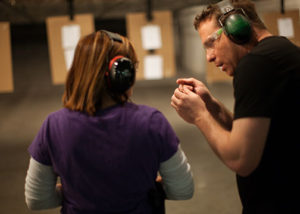 due to an increase in crime throughout the nation.
due to an increase in crime throughout the nation.
Texas Certified Training Academy has answered the demand, and now offers a License to Carry (LTC – CHL) class for both security guards and private citizens at some of the lowest prices seen in the industry.
These license to carry LTC classes are being offered at just $35 – a fraction of what most other companies charge. As a way to say “Thank you” to the troops, US Military Veterans are being gifted the class by TCTA and don’t have to pay a thing… That’s right – Absolutely Nada!
The days of the $100.00 CHL/LTC classes are over.
“Being able to receive basic firearms training and certification to defend yourself or family should not cost anyone an arm and a leg,” commented Glenn Jones, Senior Instructor and General Manager of the academy.
And being a prior veteran myself, I absolutely will not charge our vets for this class. 
This class was 12 hours long last year but now only 6 hours (per the new DPS guidelines), yet our competition still has not rolled back prices and we feel our price of $35.00 is better suited for students and people on a budget.
We teach the same exact class the guy down the street does, so why pay more?”
License to Carry Concealed Handgun Courses in Austin
Training for security guards in Texas
Security officers can benefit from attending a license to carry (LTC) – open carry class as well. Once they get off work, they don’t have to bother with disarming themselves because now they can legally carry on and off duty.
In addition to their License to Carry (LTC) class, Texas Certified Training Academy also offers an extensive list of security guard and bodyguard training classes, including classes for baton, pepper spray and handcuffing.
 All courses are taught by qualified and certified professionals with extensive experience in the subject matter and within the security field. Full course descriptions, schedules and other details can be found on their very informative TCTA website.
All courses are taught by qualified and certified professionals with extensive experience in the subject matter and within the security field. Full course descriptions, schedules and other details can be found on their very informative TCTA website.
License to Carry LTC Class in Austin, Texas Reviews:
Feedback from students who have taken courses at TCTA have been positive across the board.
 J.C. from Texas, recently said, “I’m very happy about the training I received at Texas Certified Academy. The instructors were great, and I know that I’m much more ready to defend myself and family now, not to mention I can now carry my firearm out in public where allowed.
J.C. from Texas, recently said, “I’m very happy about the training I received at Texas Certified Academy. The instructors were great, and I know that I’m much more ready to defend myself and family now, not to mention I can now carry my firearm out in public where allowed.
I’ll be back to continue my ongoing education over the summer. Five stars and fully recommended. Texas Certified Academy is really something special.”
For more information about open carry laws or chl and ltc courses in Austin, visit https://www.texasofficertraining.com.
Posted in Training Tagged with: CHL class, Concealed handgun class, Concealed handgun training, LTC class, Texas firearm training, Texas handgun certification, Texas License To Carry class
Texas Certified Training Academy reaches 4,000
Jul
26
2015

 Texas Certified Training Academy
Texas Certified Training Academy
Crosses Milestone Successfully Training over 4,000 students in the Security Industry
AUTHORIZED PRESS RELEASE – July 21, 2015
There has never been such a demand and a legitimate need for well-trained security professionals from guards to bodyguards, and beyond. One resource that consistently wins praises training these professionals is Texas Certified Training Academy. Recently, the academy celebrated training over 4,000 students who have successfully entered the security industry.
Security guards and bodyguards are needed more than ever in the state of Texas, with new employment opportunities appearing every day. Many of these jobs aren’t just nine to five paychecks, but important positions that protect people’s lives and make a real difference in the world. 
This has left the security industry in real need of professional schools that can produce quality, well-trained, responsible guards. Answering the call has been Texas Certified Training Academy, an academy well known and respected for training high-level security professionals and bodyguards.
The academy, their students and the companies employing them, have all greeted this accomplishment with enthusiasm.
“While other schools develop guards, we develop security professionals,” commented a spokesperson from Texas Certified Training Academy.
“There’s more of a need than ever and we understand that there’s a great responsibility in making sure everyone who graduates from our academy is well trained and prepared. It’s an all-around win/win for us, for our students and, most of all, for the companies they work for and the people or property they protect.”
According to the company, they are very proud to offer a number of different courses including: Non-Commission; Commission; Bodyguard; CHL; C.E.W.; Handcuffing; Pepper Spray; Baton Training; First Aid / CPR; and Advanced Weapons. New courses are often added and updated as required.
In Texas, the law is very strict in that all people performing a security role – uniformed or not – even if called a bouncer or other name, must have completed at least a non-commission security course, such as the one taught at Texas Certified Training Academy. It’s an arrestable offense to perform those job functions without the license.
Former students have praised their experience having taken courses at the academy.
 John M., from Texas, recently said, “When I came home from the army I knew I wanted to be a security guard, but one who worked for quality companies. My friend suggested I come to Texas Certified Training Academy to get certified, and I’m glad I did.
John M., from Texas, recently said, “When I came home from the army I knew I wanted to be a security guard, but one who worked for quality companies. My friend suggested I come to Texas Certified Training Academy to get certified, and I’m glad I did.
I’ve turned my past experience and certificates into very good jobs and my career just keeps getting better and better. Five stars and highly recommended. This is the place to go to for someone seriously considering a job in security in Texas, without any doubt at all.”
Security Guard Training at TCTA
Courses are scheduled very frequently at the academy and private lessons for certification are also available to interested students. All rates are some of the lowest available in the entire state.
Affordable Security Training in Austin
For more information on guard training and what security professional development they have to offer, be sure to visit Texas Certified Training Academy.
Posted in Current Events, Training Tagged with: Texas Certified Training Academy, Texas Certified Training Academy press release, Texas Certified Training Academy reviews
Texas Open Carry Law: Will It Affect Your Business?
Jul
03
2015

What, if anything, can you do as a security officer once the Texas open carry law goes into effect? As you may or may not know, the state of Texas recently passed legislation that allows open carrying of firearms in public areas which takes effect beginning January 1, 2016. 
This is in addition to the state of Texas already allowing many to carry concealed handguns legally after a short course and license. That being said, it’s safe to say there is definitely no shortage of firearms legally being carried by citizens at any given time throughout the state of Texas.
Soon, you will see armed citizens with exposed firearms walking down the street in mass numbers or maybe even sitting next to you at local restaurants.
How will Texas open carry law affect security officers?
From a gun rights and Constitutional Second Amendment standpoint, these changes in laws surely are a good thing; however, many security agencies, police departments, and businesses grow concerned as to how all this will play out come January.
While businesses and security agencies do not want to interfere in a person’s right to bear arms, there is a concern when armed citizens arrive on a property and “outgun” the security staff, especially when the security guards are unarmed.
Something to Ponder: Criminal minded people will be among the law abiding citizens carrying firearms… how will security be able to differentiate between the two?
A citizen that is demonstrating “open carry” does not automatically mean this person is safe, has been drug tested, mentally evaluated, is not drunk, under medication, etc. While allowing an “unknown person” to enter your property armed to later find out that he or she has criminal intentions, places any security staff at a major disadvantage and often, too far behind the reactionary gap before you even notice something has gone wrong.
Texas open carry law and your property
It might be too late, as you now have an active shooter in your building when you thought he was just a nice citizen exercising his right to open carry.
Question: What can security officers do if Clients do not want firearms on their property?
TCTA’s Answer: You can have anyone removed from “Private Property” at any time, for any reason under TPC 30.05 – Criminal Trespassing (Class B Misdemeanor) – regardless if they are armed or not; it has nothing to do with Constitutional rights at this point.
You are an “Agent of the Owner” (legal term), by nature of your agreement or contract with the owner, and possess the right to have that person leav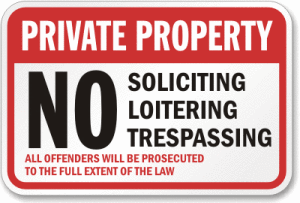 e on the owner’s behalf (note: Owner can also be a corporation or business).
e on the owner’s behalf (note: Owner can also be a corporation or business).
This is in addition or in the absence of a TPC 30.06 sign (notice) or a red 51% sign at some locations. Straight Trespass as per TPC 30.05 keeps everyone and anyone away for any reason. They have now added a TPC 30.07 section for open carry requiring businesses to now display both and in English and Spanish.
Special note: a verbal warning is sufficient under this code to warn the offender prior to an arrest.
Some will argue that your Private Property is “Open to the Public” and therefore they can be on the premises. This is FALSE. You need to inform all parties that there is a big difference between Public Property and “Open to the Public.”
Example: Walmart is open to the public for anyone to come and shop but it is owned by a private corporation, not the city, county, or federal government. Not only Walmart (the store), but their entire parking lot is also considered private property, so trespassing would still apply if you or your client want to go down that road.
For more information on Trespassing, visit our Contact page.
For direct information put out by DPS-RSD from their site, here is the link to the Open Carry post they provided: DPS-Open Carry
Posted in Current Events, Laws & Regulations, Training Tagged with: Open Carry Demonstration, Security guards and open carry law, security training, Texas Open carry, Texas open carry law
Can security guards make arrests?
Jun
15
2015

This question has been asked time and time again, and the answer is: Yes, security officers can make arrests. Through our training school, Texas Certified Training Academy, we cover extensively all the laws that pertain to this.
The arrest a security officer makes is stated under the Texas Code of Criminal Procedures (Art 14.01) – the same as any citizen can make (citizen’s arrest). In fact, that law states “any person” and uses the word “arrest,” not detain.
Once done under OCC 14.06, you are then required to turn the suspect over to law enforcement without delay (which prevents “catch and release” on your own). This can expose you and your company to liability, so please ensure you are educated here and taught by a professional school such as our training academy.
Security guards make arrests… but is it legal?
There are a few companies and even schools that make unsupported claims that security officers cannot make arrests; we welcome them to attend our courses while we study & discuss the Penal code, Case law, Code of Criminal procedures, and many other areas.
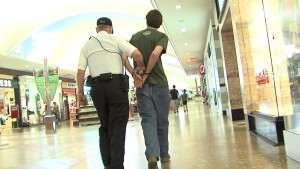 Every citizen in the State of Texas has the right to make or affect a “citizen’s arrest;” as a security officer/guard, you are a private citizen, so this applies to you and more so being the “agent of the owner” under contract at the properties you serve.
Every citizen in the State of Texas has the right to make or affect a “citizen’s arrest;” as a security officer/guard, you are a private citizen, so this applies to you and more so being the “agent of the owner” under contract at the properties you serve.
Your client’s or company’s procedures may state “do nothing,” but just know what the law says and that you do have the right as allowed and protected by law to do more than “observe and report.”
But Keep In Mind:
Being able to make an arrest doesn’t give security officers the right to illegally detain someone, so be sure you are fully aware of your legal rights as a guard and the legal rights of citizens. Being armed with knowledge. and training can save guard companies and security guards tremendously.
Security guards arrested
Guard Arrested #1
Bank security guard tried to prevent a man suspected of attempted forgery from exiting a bank by blocking the doorway. The suspect tried to walk past the guard, a struggle between the two ensued; the security officer then stabbed the suspect to keep him from exiting the bank.
The suspect was charged with misdemeanor Forgery in the Fourth Degree; the security guard was charged with a felony, Aggravated Assault. Courtesy of Kevin Rowson
Guard Arrested #2
Security officer charged with second-degree assault with a weapon and criminal possession of a weapon for assaulting a concert goer at a music festival he was providing security for. The security officer kicked the concert goer in the face and struck him with a blunt object. Courtesy of Amanda Purcell
The above stories are just a couple of examples of what ignorance can do to guards. It’s imperative to get trained and understand what you as a security officer can legally do.
We provide you with “what if” scenarios and stipulations, use of force, Detention vs. Arrest, and much more.
Posted in Laws & Regulations, Training Tagged with: citizens arrest, security making arrests, Security Officer Training Austin
Handcuff Training – Should It Be Required?
May
20
2015

If your career has you in a position where you can arrest and place individuals in handcuffs, handcuff training should definitely be required. It doesn’t take a rocket scientist to figure out how to use handcuffs; they are rather simple mechanical pieces of equipment that have had few changes in design over the years.
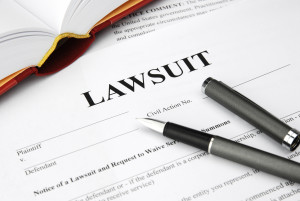 Because the equipment is so simple to operate, many make the mistake of disregarding training – feeling perhaps it is unnecessary. A considerable amount of lawsuits that hit security agencies and police departments surround or involve the arrest process or some type of use of force; with that said, it only makes sense that security professionals remain highly-trained and knowledgeable in this area.
Because the equipment is so simple to operate, many make the mistake of disregarding training – feeling perhaps it is unnecessary. A considerable amount of lawsuits that hit security agencies and police departments surround or involve the arrest process or some type of use of force; with that said, it only makes sense that security professionals remain highly-trained and knowledgeable in this area.
Formal training must be sought not only for an educational standpoint but also from a liability standpoint. Proof of certification and official training will add additional protection to you and your company in any use of force claim, regardless of your prior experience – you need official programs behind you.
Can a security guard legally handcuff someone?
In the News: High school security guard handcuffed a student with cerebral palsy sitting in a wheelchair; the guard then assaulted the student. The security officer was charged with felony assault and could face up to four years in prison for his actions. *A lawsuit against the guard and the company he worked for were not mentioned, but one can definitely guarantee it is sure to follow!
The video of the guard illegally handcuffing a woman and the story of the security officer handcuffing and assaulting a student should make you want to gather as much information as possible when dealing with the general public and what you as a guard can legally do with handcuffs.
Handcuff training classes for security officers
Texas Certified Training Academy’s courses are not “check the box” courses, nor do we only focus 80% on the operation of handcuffs, loading, drawing, key holes up, and positioning, like some other guard training facilities.
 We know that outside of a classroom, not every suspect goes into handcuffs willingly and we know that even when you do everything correctly, you can still be named in a lawsuit. Putting the cuffs on and patting down a suspect is where most of the other courses end, yet ours continue to provide you with the entire arrest, step-by-step, legal package.
We know that outside of a classroom, not every suspect goes into handcuffs willingly and we know that even when you do everything correctly, you can still be named in a lawsuit. Putting the cuffs on and patting down a suspect is where most of the other courses end, yet ours continue to provide you with the entire arrest, step-by-step, legal package.
Some courses develop great “speed cuffers” or “handcuff acrobatics,” however the officers being untaught about the law in detail breeds hundreds of bad arrests and lawsuits each year.
Fully equipped with how to and when to use handcuffs will protect security officers against frivolous mistakes that untrained security officers often make. Get it right the first time around and take a course with your best interest in mind.
To get more information about handcuff training for guards, click here.
Posted in Equipment & Weapons, Training Tagged with: Can guards legal handcuff, Handcuff training Austin, Legal for guards to handcuff, Security guards using handcuffs, security training austin
In-House Security Training Programs – Are They Effective?
May
10
2015

Should guard companies teach their own officers by providing in-house security training programs? Now this may seem like a no-brainer to some companies monetarily speaking but lack of a good program, to include ensuring laws and procedures are given to each security officer, could cost so much more than the few dollars companies attempt to save by giving their own classes.
Aside from the two or three state required and regulated security training courses which must be given by a licensed training academy, DPS-RSD expects each security company to provide “employer-based training” to its employees while working at their company.
No one-time class at any school was meant to be enough for a guard’s entire career.
Outsourced versus In-house security training programs
Every employer is expected to keep their officers updated on not just company “Dos and Don’ts,” but also on laws, policies and regulations. We applaud all companies that actually take the time and care to do this.
Outside of basic informational company meetings and classes, we want to caution all security providers from entering into the area (generally done to save a buck), handled by a “licensed training academy” with licensed Instructors.
Although the state currently allows all guard companies to give their own Level-2 (non-commission guard course) in their own office, some are now providing their own handcuffing, OC, defensive tactics and a handful of other “homemade” classes.
 There are a few issues to consider if you are a guard company providing “in-house security training programs.”
There are a few issues to consider if you are a guard company providing “in-house security training programs.”
Your biggest concern in this business, if you have been around for any length of time, is “Liability.”
Any time you give any type of class, whether it is a Level-2, handcuffs, OC, or Verbal Judo, you and your company are placing yourselves at risk for the guard’s actions by certifying and/or providing their training – which 100% will come into question in every court case. So, you will not only be liable for a guard’s actions while on duty, but also the training you provided will follow them throughout their career.
It will not matter whether you provide a certificate or not, or if you have the guards sign a waiver, if you trained them you could potentially be named in the lawsuit. Remember the term “deep pockets” and the fact that the guards have limited money? Attorneys will pursue the guard company, the client and whoever trained them.
Not only are you exposing yourself to more liability but with that said, how many guard companies have notified their insurance of the added exposure that they are conducting training operations, and sought the additional coverage to protect them… probably not many.
Who wants to be part of a lawsuit for a guard your company trained years ago?
Since your company trained the officer, even though he no longer works for your establishment, you can be named in a lawsuit, as he is using tactics taught by you.
 The few dollars you might save by providing in-house training will be lost with the extended exposure to your company by “training” the guards yourself.
The few dollars you might save by providing in-house training will be lost with the extended exposure to your company by “training” the guards yourself.
Remember This: Separation, layers of protection, and deniability cannot be done if you are 100% training your own officers yourself.
Private security training programs
While providing training, you will have to keep training records, seek updates, ensure you are providing up-to-date information on all laws, and be proficient at your task. This takes away from company administration time, and oh by the way, if the training is mandatory, to include any mandatory company meetings by Texas law, you have to place your employees on the clock during that time and pay them.
The bottom line is: outside of company SOPs and company updates, leave the training to licensed, insured and professional training academies that use state licensed Instructors.  Texas Certified Training Academy is prepared to handle training records; we have immersed ourselves in the law and procedures; and we can defend ourselves and the guards in court, as this is what we do for a living – make sure your employees are trained properly and limit your liability.
Texas Certified Training Academy is prepared to handle training records; we have immersed ourselves in the law and procedures; and we can defend ourselves and the guards in court, as this is what we do for a living – make sure your employees are trained properly and limit your liability.
Want more information about in-house security training, contact Texas Certified Training Academy.
Posted in Training Tagged with: employer training, In-House Security Training, security training in-house
Can security guards legally carry firearms off duty?
Feb
19
2015

Security guards often travel to and from work in gear – some armed, while others unarmed. Is it legal for security officers to carry guns into locations they are not assigned to? If not on post, can security guards legally carry firearms off duty?
This is a very hot topic with security and law enforcement right now as the industry expands and guards are being seen many places armed. Some question if this is a violation or not… well, here’s the answer to this once and for all.
Texas Certified Training Academy has received several phone calls monthly pertaining to the topic at hand along with a few emails from security companies and law enforcement all inquiring about what we are teaching, what the regulations state, and what our understanding of the” Letter and the Spirit” of this law is.
Many have checked with DPS and were referred to the Texas Penal Code section 46.02 & 46.03 or were given different answers depending on who answered the phone at DPS.
Security guards carrying firearms off duty – Do guard companies allow this?
The issue: Security officers are seen eating at restaurants, shopping at local grocery stores, and standing in line for personal reasons such as paying bills, but all in uniform and fully armed. None of the places mentioned were contracted locations their company was providing services for.
Because the state has licensed them, their firearm is exposed, and they are in uniform, the guards should be “good to go” anywhere they please.
Some guards say “I don’t want to leave an unsecured firearm in my vehicle while I go inside to shop;” others will state, “they changed the law and now we can do it” – but they don’t know the penal code number and cannot recite word for word what it even says.
Some know a piece of it and will tell you that in 2007 a Texas House Bill was passed which changed the wording of TPC 46.03 and they took out the word “Directly” and specifically gave security mention and permission; this is where the misunderstanding comes in and the problem begins.
This all starts from officers not being properly trained by other schools and not being properly informed by their companies.
Security training for armed and unarmed guards
We have to study the two laws that cover this area to understand what is right or wrong here:
Sec. 46.02. UNLAWFUL CARRYING WEAPONS.
(a) A person commits an offense if the person intentionally, knowingly, or recklessly carries on or about his or her person a handgun, illegal knife, or club if the person is not:
(1) on the person’s own premises or premises under the person’s control; or
(2) inside of or directly en route to a motor vehicle that is owned by the person or under the person’s control.
an offense under this section is a Class A misdemeanor.
Continued from 46.02: (c) An offense under this section is a felony of the third degree if the offense is committed on any premises licensed or issued a permit by this state for the sale of alcoholic beverages.
Sec. 46.03. PLACES WEAPONS PROHIBITED. 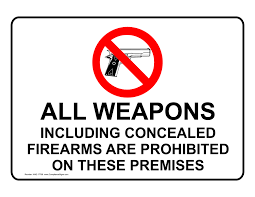
(a) A person commits an offense if the person intentionally, knowingly, or recklessly possesses or goes with a firearm, illegal knife, club, or prohibited weapon listed in Section 46.05(a):
(1) on the physical premises of a school or educational institution, any grounds or building on which an activity sponsored by a school or educational institution is being conducted, or a passenger transportation vehicle of a school or educational institution, whether the school or educational institution is public or private, unless pursuant to written regulations or written authorization of the institution; (2) Polling place (3) Any government court or offices utilized by the court, unless pursuant to written regulations or written authorization of the court; (4) On the premises of a racetrack; (5) In or into a secured area of an airport;
(d) It is a defense to prosecution under Subsection (a)(5) that the actor possessed a firearm or club while traveling to or from the actor’s place of assignment or in the actual discharge of duties as:
(1) A member of the armed forces or National Guard;
(2) A guard employed by a penal institution; or
(3) A security officer commissioned by the Texas Private Security Board if:
(A) The actor is wearing a distinctive uniform; and
(B) The firearm or club is in plain view; or
(h) It is a defense to prosecution under Subsection (a)(4) that the actor possessed a firearm or club while traveling to or from the actor’s place of assignment or in the actual discharge of duties as a security officer commissioned by the Texas Board of Private Investigators and Private Security Agencies, if:
(1) The actor is wearing a distinctive uniform; and
(2) The firearm or club is in plain view.
(i) It is an exception to the application of Subsection (a)(6) that the actor possessed a firearm or club:
(1) While in a vehicle being driven on a public road; or
(2) At the actor’s residence or place of employment.
Is it against the law for off-duty security to carry guns?
Although everyone points to TPC 46.03, this talks about prohibited areas such as churches, schools, polling places, courts, government offices, racetracks, etc. – places you are not allowed to be or around with your firearm.
This same section gives permission for security officers to be in those stated locations only if they fit the stated criteria. This only allows exemptions to the prohibited areas if you are assigned there or traveling to and from the actor’s place of assignment (work site).
This permits you to travel through a school zone armed if you’re on your way to work, or you may legally work at a courthouse or other location armed if you fit the criteria. This is not a green pass to travel all over your town and go shopping , wash your car, and sit down and eat meals at restaurants armed; you are NO LONGER TRAVELING and the protection from the exemption no longer applies.
So the two things in that section that guards incorrectly use is (1) Place of assignment, and (2) Traveling.
If your security company does not have a contract at Walmart, HEB, or at your local restaurant, then those locations are NOT your place of assignment. If you are not in “travel mode” and you stop and go shopping, you are not protected by this law (period!)
Section 42.02 states you commit an offense if you are carrying a handgun or club (baton) on a property that is not yours or that you are not in control of – or that you are not in a vehicle or in route to or from a vehicle. This 100% shuts the door completely on the guards doing this without any spirit or letter of the law here.
Another big issue no one has brought up is the insurance issue. As an armed security officer, your company carries liability insurance for your actions and that firearm; however, your company’s insurance policy only covers your actions on your client’s property…
So basically, security officers are uninsured when they do this, to include breaking the law.
 The laws are very clear and we recommend if you have to go inside a store or restaurant either take your gun belt off or get a CHL and conceal your weapon… or don’t make that stop. Some have argued that they have entered private property and only the place of business can ask them to leave – WRONG!
The laws are very clear and we recommend if you have to go inside a store or restaurant either take your gun belt off or get a CHL and conceal your weapon… or don’t make that stop. Some have argued that they have entered private property and only the place of business can ask them to leave – WRONG!
The place of business protects you from Trespassing (in our example), as you are welcome to be there but the place of business cannot give you permission to break a state law regarding unlawful carrying of a firearm.
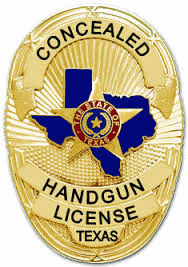 Lastly, a CHL cannot be combined with any security regulated work, so if using this avenue to carry then you would have to be out of uniform. With Texas’ open carry law taking place January 1, 2015, this also will not apply to licensed and uniform security officers.
Lastly, a CHL cannot be combined with any security regulated work, so if using this avenue to carry then you would have to be out of uniform. With Texas’ open carry law taking place January 1, 2015, this also will not apply to licensed and uniform security officers.
For more info on this topic, contact Texas Certified Training Academy.
Posted in Laws & Regulations, Training Tagged with: Guards carrying off duty, Security guards carrying firearms off duty, Security officers carrying firearms off post?, security training, Texas guards carrying off duty
Level-3 Recertification Requirements – Texas
Jan
17
2015
Students often inquire about why some private security training schools offer an eight hour Level-3 recertification course while others offer a six hour course. Looking around at a few training academies in the Central Texas area, we’ve noticed the students were correct in what they saw and that wrong information was being posted or advertised for Level-3 recertification requirements.
“You have to go with what’s in black and white.” 
The official recertification course for the Level-3 license is (6) hours not (8) hours. This regulation can be found within DPS-RSD’s Administration rules and regulations, to include 1702. OCC; there are 2 parts under recertification: (8) hours only pertains to non-listed courses, (6) hours is listed specifically for the Level-3 commission class.
So, the other schools saw (8) hours at the top of the section and did not read through the full regulation, or maybe they just want to give students two more hours of training for free, who knows.
Private security training recertification
“When in doubt, check the code.”
DPS-RSD RULE §35.291 Continuing Education Courses states “six” (6), and OCC
§1702.309 states “six” (6) hours for Level-3/Level-4 recertification; you have
to read below the first line or two.
At TCTA, we won’t make you sit through two more additional hours that you are not required to – unless you want to.
When searching around for professional security training, be sure to check on the school as well as the Instructors; after all, this is your career on the line – what you learn or don’t learn can cost you tremendously.
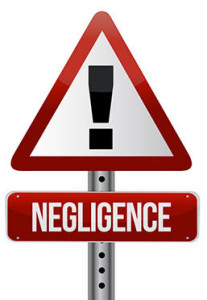 Lack of knowledge and incorrect training can lead to lawsuits and imprisonment… do you really have time for this? It’s best you do your part and spend a little time getting to know the institution and trainers you will acquire education from.
Lack of knowledge and incorrect training can lead to lawsuits and imprisonment… do you really have time for this? It’s best you do your part and spend a little time getting to know the institution and trainers you will acquire education from.
Posted in DPS-RSD Policies, Training Tagged with: level 3 commission recertification, level 3 commission training, level 3 recertification, level 3 recertification requirements, private security training, Security Training -Recertification, security training Texas, training for guards Texas
Does level-3 security license outrank level-2
Feb
13
2014
The security licensing process and requirements can be somewhat perplexed. If you are a security professional and would like to know if you have to renew the level-2 license if you currently hold a level-3 license, then reading this will certainly eliminate some of your confusion.
There are some unspecified and unstated guidelines regarding the Level-2 (Non-commission license) and the Level-3 (Commission license).
Many in the industry have expressed and passed on to others (from a non-official standpoint), that “once you get your Level-3 Commission license, you no longer need your Level-2 Non-commission license and you no longer need to renew it.” Some also state that “a Level-3 (Commission license) ‘outranks’ a Level-2 (Non-commission).”
Is a level-2 license required if you have a level-3 security license?
In theory, these points or arguments made by many sound reasonable and make sense. The problem is that there is NO regulation, rule, code, or law to back this claim up at all – anywhere.
We too, agree that an officer who has gone through a 40 hour Commission class surely “outranks” a Level-2 officer as far as licensing, and as such, should be able to perform both (armed & unarmed) using only the Commission license depending on what account the security company assigns the guard to.
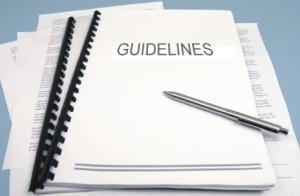 Again, nothing in any code or rule allows for this, so we contacted DPS and emailed the Licensing Supervisor, and after outlining the issue at hand, this was his response:
Again, nothing in any code or rule allows for this, so we contacted DPS and emailed the Licensing Supervisor, and after outlining the issue at hand, this was his response:
“Depending what assignment you will be working will be decided by the security company; however, you must be specifically licensed for that regulated duty you are performing.”– DPS Licensing Supervisor
Security licensing renewal process Texas
Anyone that has ever dealt with DPS-Private Security Bureau /Board /Commission /Project (the name keeps changing), will agree that many times you will not get a simple “yes” or “no” for whatever reason.
With the lack of clear defined regulations regarding this, we have to go on what their understanding is on the matter at hand and how DPS wants this dealt with so that we won’t be in jeopardy of being in violation and/or fined.
Reading the Licensing Supervisor’s email response, we can only understand this as if you are working in an unarmed capacity, then you should have a “Non-commissioned” license; if you are working in an armed capacity, then you should have a “Commissioned” license. There is no such thing as one license “outranking” another – to be clear here.
This is another one of those things in a long list of many areas that needs to be addressed and corrected as the industry continues to grow and question/study the regulations a lot more closely than past years.
Remember, it is not the fact you take your firearm off that makes you a Non-commission officer, it is that pocket card you carry that says so. With a Level-2 Non-commission license only being $35.00 which is good for two full years, we would just recommend keeping both your Level-2 and your Level-3 current at all times so that you can work both armed or unarmed as needed and you won’t be at risk of a ticket.
Some Officers say they will never work unarmed again, but if your company has a client that only wants unarmed guards, then you don’t have a choice if you want to work, so you might want to keep both current.
For more information about security licensing, contact TCTA.
Posted in DPS-RSD Policies, Training Tagged with: Commission license Austin, Level 2 licensing, level 3 licensing, Non-commission license Austin, security license, security recertification, security recertification process

